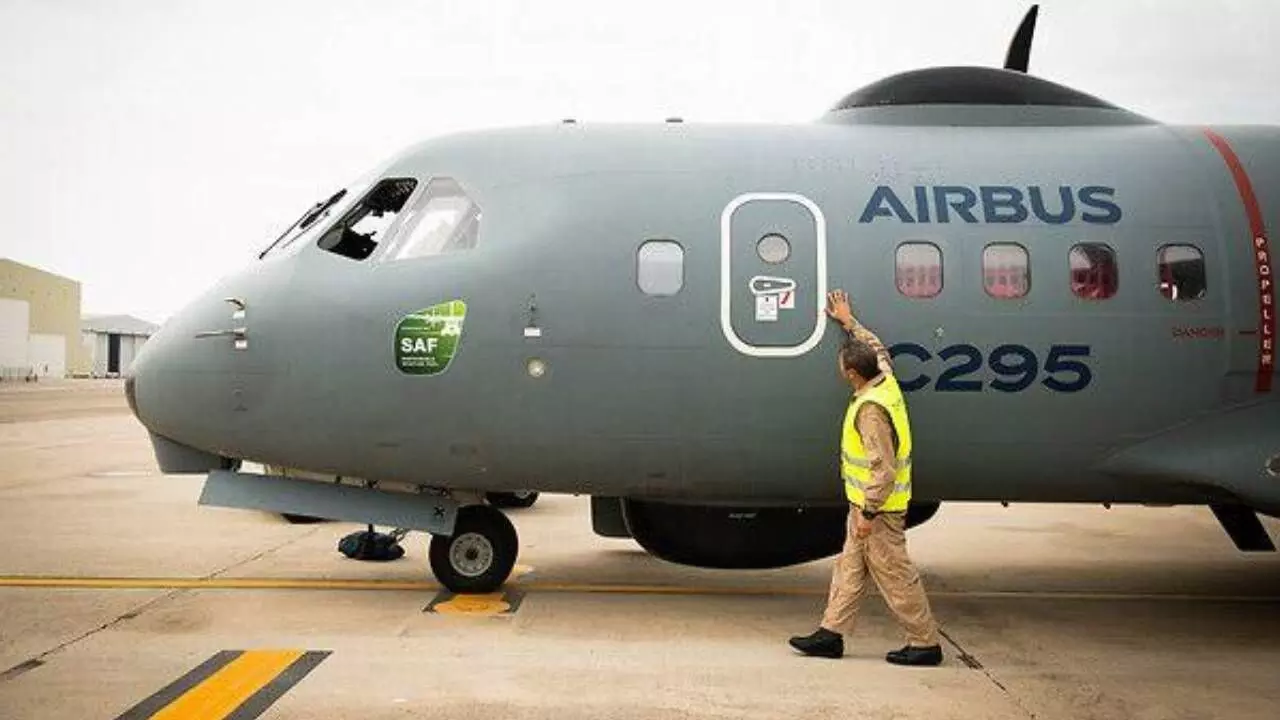Defence production can take off on Tata-Airbus C295 aircraft
The Tata-Airbus C295 aircraft plant at Vadodara in Gujarat is a milestone in India’s indigenous defence production. The facility has been set up by TATA Advanced Systems Limited (TASL), which is a joint venture between the Tata Group and Airbus
Defence production can take off on Tata-Airbus C295 aircraft

The Tata-Airbus C295 aircraft plant at Vadodara in Gujarat is a milestone in India’s indigenous defence production. The facility has been set up by TATA Advanced Systems Limited (TASL), which is a joint venture between the Tata Group and Airbus. The objective is the production of C295, a medium tactical transport aircraft. While the military would have preferred heavy transport aircraft, making C295 would be no mean achievement.
Prime Minister Narendra Modi and his Spanish counterpart, Pedro Sanchez, jointly inaugurated the TATA Aircraft Complex this week. The C-295 programme comprises 56 aircraft of which 16 will be delivered directly by Airbus from Spain, whereas the rest will be made in India.
Domestic defence production has indeed come a long way in this century. Come to think of it: till 2001, private companies were not allowed to produce defence items. The anomaly was that private companies of other countries could sell their goods to India! While announcing the Atal Bihari Vajpayee government’s decision to open up defence production to domestic private enterprises, Union parliamentary affairs minister Pramod Mahajan had underlined this inconsistency.
And now we will have the first private-sector facility in India dedicated to manufacturing military aircraft. With an investment of more than Rs 21,935 crore ($3 billion), this plant is India’s great leap forward towards self-reliance in defense production. Apart from a testament to India’s ability to engage in technologically advanced manufacturing, this is important from another perspective: despite the Modi government’s emphasis on manufacturing, as evidenced from the Aatmanirbharta (self-reliance) drive and production-linked incentive (PLI) schemes, we are still the world’s largest arms importer. We purchased 9.8 per cent of total global imports in 2019-23.
At the inauguration, the Prime Minister correctly said that India’s transformation of the defence sector exemplifies how a right plan and partnership can turn possibilities into prosperity. He underlined that strategic decisions have spurred the growth of a vibrant defense industry in India over the last decade. “We expanded private sector participation in defence manufacturing, made public sector units more efficient, restructured ordnance factories into seven major companies, and empowered DRDO and HAL.”
Modi was also upbeat about the employment generation potential of TASL and its ancillaries. Since C295 aircraft need 18,000 parts, micro, small and medium enterprises (MSMEs) across the country will have numerous opportunities to show their mettle and pick up their share of the pie.
The Prime Minister’s vision is clear and grand; for him the TASL factory is not just about making military transport aircraft; it is about effecting transformation of the country’s aviation sector. In the last decade, there has been major improvement in domestic air connectivity, which is also aimed at making India a hub of aviation and MRO domain. This ecosystem, he said, will pave the way for Made in India civil aircraft in the future.
Clarity of vision, however, must be accompanied with the thoroughness of execution. The Tata-Airbus C295 facility can galvanize the defense sector and boost manufacturing, but this will be predicated upon a few prerequisites. The government must ensure that its functionaries—publicity-seeking ministers, officious officials, overzealous taxmen, et al—do not trouble the companies involved in the entire supply chain which the government hopes would emerge.
Ideally, the government must ensure that for all sectors, but in defence production it is urgently needed.

